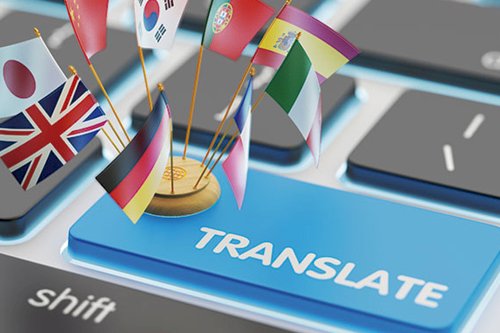The Benefits of Localization in Translation: Why One Size Does Not Fit All
In today's globalized world, businesses and organizations are expanding their reach beyond borders, and language is no longer a barrier to communication.

In today's globalized world, businesses and organizations are expanding their reach beyond borders, and language is no longer a barrier to communication. Translation has become an essential tool to reach a wider audience, but one size does not fit all. Localization is the key to effectively communicating with a target audience.
 Localization is the process of adapting content to the cultural, linguistic, and other specific requirements of a particular market. It involves not only translating words, but also taking into account cultural norms, nuances, and preferences. It is more than just a simple translation of words and phrases; it is a complete adaptation of the content to the target market, taking into account the target audience's cultural background, values, and beliefs.
Localization is the process of adapting content to the cultural, linguistic, and other specific requirements of a particular market. It involves not only translating words, but also taking into account cultural norms, nuances, and preferences. It is more than just a simple translation of words and phrases; it is a complete adaptation of the content to the target market, taking into account the target audience's cultural background, values, and beliefs.
The benefits of localization are numerous, and they extend beyond just reaching a wider audience. Here are some of the key benefits of localization in translation:
- Better Communication: Localization ensures that your message is not lost in translation. It takes into account cultural nuances and linguistic differences, ensuring that your message is clear, concise, and relevant to the target audience.
- Increased Customer Satisfaction: By localizing your content, you are demonstrating that you understand and respect the target audience's culture and language. This creates a sense of familiarity and trust with the audience, which can lead to increased customer satisfaction and loyalty.
- Improved Marketing Strategy: Localizing your content allows you to tailor your marketing strategy to the specific needs of the target market. By understanding the cultural preferences and behaviors of the target audience, you can create a more effective marketing strategy that resonates with the audience.
- Competitive Advantage: Localization can give you a competitive advantage in the global marketplace. By effectively communicating with the target audience, you can differentiate your brand and products from competitors who may not have taken the time to localize their content.
- Cost-Effective: Localization may seem like an additional expense, but it can actually be cost-effective in the long run. By investing in localization, you are reducing the risk of miscommunication and cultural misunderstandings, which can be costly in terms of time, money, and reputation.
Conclusion
Localization is a crucial aspect of translation in translation company birmingham that should not be overlooked. It ensures that your message is effectively communicated to the target audience and demonstrates respect for their culture and language. By investing in localization, businesses and organizations can reap the benefits of improved communication, customer satisfaction, marketing strategy, competitive advantage, and cost-effectiveness.








































